Rodney Sieh, publisher of FrontPage Africa, Liberia, unable to pay a fine of $1.5 million and having contracted malaria, is now under police guard in a hospital with no relief in sight.
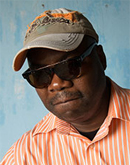 Sieh |
His offense? His paper reported that a government investigation found that nearly $6 million was unaccounted for at the Agricultural Commission headed by Christopher Toe.
Although no prosecution took place, Toe and others were dismissed by the government headed by Ellen Johnson Sirleaf, described by Sieh as "a Nobel laureate who is celebrated by the likes of Bill Gates, Warren Buffet and Bono and who has positioned herself as a champion of a free press."
Toe sued Sieh for libel, saying no court had convicted him of anything, winning an initial $2M judgment in 2010.
Police have shut down the paper and placed Sieh under guard until he can pay the $1.5M fine. He notes that is more than 30 times the paper's annual budget.
Do Courts Produce Justice?!
Being dragged into court where the typical legal retainer is $10,000 followed by similar bills is a reporter's nightmare.
It happened to the O'Dwyer Co. in 1994 when it was sued for $21 million by The Journalist and Financial Reporting and its publisher Dean Rotbart. Involved in this action were PR Society of America and NYT.
It cost the O'Dwyer Co. $80,000+ to get the charges dismissed.
Rotbart accurately told the 1993 PR Society conference that news tips and ads influence news coverage.
The Society videotaped his hour and 40-minute presentation with two cameras, intending to make it the highlight of its new video library.
The NYT was so excited by our Dec. 27, 1993 coverage of the talk that it sent a photographer to Rotbart's home in Ridgewood, N.J.
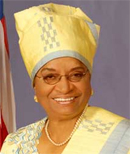 Sirleaf |
The NYT story, by Bill Glaberson, had the misleading, even spurious headline of "War of Words, About Journalists." It should have been, "Ads, News Tips Impact Stories."
Rotbart had evidence of this. Several journalists were named, including Strat Sherman of Fortune. Rotbart wondered if Fortune writers were doing "positive" pieces about leading businesspeople in order to be their biographers.
Sherman heatedly denied this after we sent him portions of the speech, as requested, so he could see the "context."
The Glaberson story falsely accused me of "slipping" into the session (I was a credentialed reporter with a press badge); of making a "secret tape" (I had the right to tape the talk for purposes of accuracy but could not reprint it), and of printing a "transcript" of the talk (sections were only sent privately to named reporters). A law firm supervised everything we wrote.
The embarrassed Society never sold the tape. Rotbart's message, although accurate, flew in the face of the Society's ethical code that barred anything but facts in pitching a story. A 30-city tour of "Newsroom Confidential" was cancelled.
The ill will of NYT is shown by the fact it covered neither the lawsuit nor the O'Dwyer victory although the decision made page one of the New York Law Journal and was hailed in other journals for breaking new legal ground.
Sieh's Only Hope is Public Opinion
The jailing of Sieh comes under the heading of interfering with journalists and should be of concern to PR practitioners because making placements in traditional media is still a major goal for them. Journalists are the blood brothers of PR people.
Sieh, faced with injustice by the Liberian court and government, is doing the only thing he can do which is make as much noise as possible in the hope that public opinion will sway the authorities.
The O'Dwyer Co., battling a boycott by the PR Society that has kept our reporters out of the national conference two years in a row including the Assembly, exhibit hall and all the sessions, is conducting a similar campaign.
Allies so far including the National Press Club, New York State Senator Liz Krueger, PR Watch and a half dozen blogs.
Sitting on their hands is most of the J establishment including the Committee to Protect Journalists (located 12 blocks from the O'Dwyer Co.), ProPublica, Society of Professional Journalists, New York Financial Writers Assn., Columbia J School and its Review, Pew's Project for Excellence in J, Poynter, Reporters Committee for Freedom of the Press, Assn. for Excellence in J and Mass Comms., Ethics and Excellence in J Foundation (Oklahoma City), Overseas Press Club, Center for Int'l Media Assistance, Reporters without Borders, and Investigative Reporters & Editors.
A notable no-show is MSNBC's Chris Matthews who is known for his strong opinions on numerous subjects. He is the husband of Kathleen Matthews, Marriott PR head.
Help is being sought from conference co-chairs Oscar Suris of Wells Fargo and Patrice Tanaka of PadillaCRT, but so far they have proven to have no clout. Another avenue we are taking is writing and e-mailing the nearly 100 past and present PR Society conference exhibitors, expressing the hope that we will be allowed to see them in person Oct. 26-29 in Philadelphia.
Blocking exhibitors from gaining coverage in O'Dwyer media including our website, magazine, NL and PR Buyer's Guide, works against the interests of the exhibitors. The Society closed the exhibit hall from 1995-99, saying it was unprofitable. A better explanation is that the Society feared encroachment by services on PR's turf.
 Carr |
David Carr of the NYT on Aug. 25 wondered why journalists are being so tough on each other these days.
His Jan. 29, 2012 column told how hard it is to get by corporate PR gatekeepers who serve him "slop."
The Aug. 25 column, titled "War on Leaks Is Pitting Journalist vs. Journalist," says that if NYT, Time mag or CNN had revealed National Security Agency's logging of private e-mails, they would "already be building new shelves to hold all the Pulitzer Prizes and Peabodies they expected."
He repeats that charge for the 2010 WikiLeaks video of a U.S. Army helicopter firing on a group of civilians including two Reuters journalists.
WikiLeaks has also shown that the U.S. "turned a blind eye on the use of torture by our Iraqi allies," writes Carr.
Assange, Snowden "Not Real Journalists"
He feels that the journalistic establishment does not regard Julian Assange, founder of WikiLeaks, and Edward Snowden, accused of leaking secret U.S. and U.K. government documents while employed by the U.S. government, as "real" journalists. Rather, he says, they are in the "emerging Fifth Estate composed of leakers, activists and bloggers who threaten us in traditional media."
Carr is shocked that Time senior staffer Michael Grunwald wrote on Twitter: "I can't wait to write a defense of the drone strike that takes out Julian Assange." Grunwald later apologized for that.
Assange has also come under "withering criticism" by NYT, Carr notes.
Jeffrey Toobin, who writes for CNN and The New Yorker, said Snowden is "a grandiose narcissist who belongs in prison."
Ellsberg A Goat Who Became a "Hero"
Carr notes that Daniel Ellsberg, who outed what became The Pentagon Papers in 1969, was indicted and dragged through courts for two years but emerged as "a hero and enshrined in the journalistic canon."
After all the current "friendly fire" from fellow journalists, he wonders about the fate of Assange and Snowden.
Journalism's role in the WikiLeaks will be examined by "The Fifth Estate," which will be released nationwide by DreamWorks Oct. 18.
The "dramatic thriller based on real events" stars Benedict Cumberbatch as Assange.
The Sept. 2 New Yorker, discussing the production, says that the disclosures of state secrets by Assange and Snowden "have served the public interest."


 Trump Media & Technology Group today reported a $58.2M net loss on $4.1M in 2023 revenues, a disclosure that drove its stock price down 22.6 percent to $47.96.
Trump Media & Technology Group today reported a $58.2M net loss on $4.1M in 2023 revenues, a disclosure that drove its stock price down 22.6 percent to $47.96.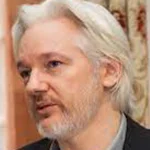 Barry Pollack, an attorney at Wall Street’s Harris St. Laurent & Wechsler, has registered Julian Assange as a client with the Justice Dept. “out of an abundance of caution.”
Barry Pollack, an attorney at Wall Street’s Harris St. Laurent & Wechsler, has registered Julian Assange as a client with the Justice Dept. “out of an abundance of caution.”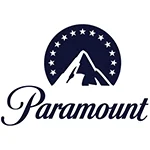 Paramount Global to slash 800 jobs in what chief executive Bob Bakish calls part of an effort to “return the company to earnings growth"... Rolling Stone editor-in-chief Noah Shachtman is exiting at the end of the month due to disagreements with chief executive Gus Wenner over the direction the magazine is taking... The New York Times broke the $1 billion barrier in annual revenue from digital subscriptions in 2023... Press Forward is investing more than $500 million to strengthen local newsrooms.
Paramount Global to slash 800 jobs in what chief executive Bob Bakish calls part of an effort to “return the company to earnings growth"... Rolling Stone editor-in-chief Noah Shachtman is exiting at the end of the month due to disagreements with chief executive Gus Wenner over the direction the magazine is taking... The New York Times broke the $1 billion barrier in annual revenue from digital subscriptions in 2023... Press Forward is investing more than $500 million to strengthen local newsrooms.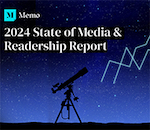 The majority of news articles are read within the first three days of publication, according to a recent report.
The majority of news articles are read within the first three days of publication, according to a recent report.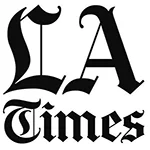 The Los Angeles Times gives pink slips to 115 people or 20 percent of its newsroom staff... TIME is also laying off about 30 employees, which is approximately 15 percent of its editorial staff... The Baltimore Banner, which was launched by Stewart Bainum in 2022 after he failed to buy the Baltimore Sun, added 500 subscribers per day in the three days following Sinclair Broadcast Group's deal to purchase the Sun.
The Los Angeles Times gives pink slips to 115 people or 20 percent of its newsroom staff... TIME is also laying off about 30 employees, which is approximately 15 percent of its editorial staff... The Baltimore Banner, which was launched by Stewart Bainum in 2022 after he failed to buy the Baltimore Sun, added 500 subscribers per day in the three days following Sinclair Broadcast Group's deal to purchase the Sun.


 Have a comment? Send it to
Have a comment? Send it to 
No comments have been submitted for this story yet.